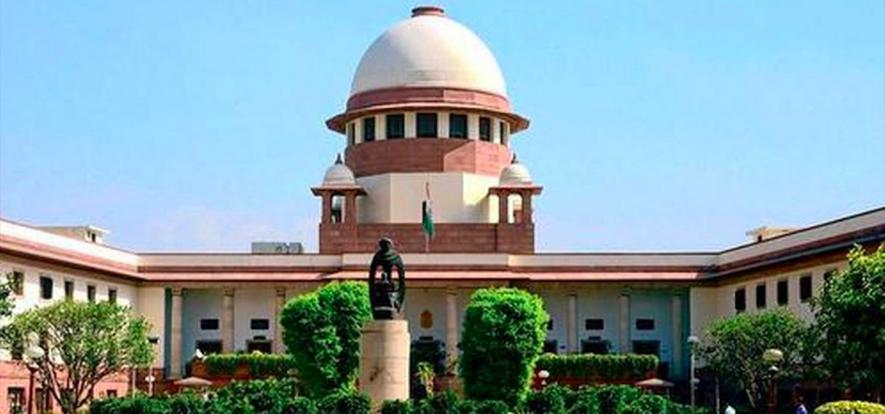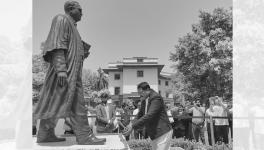In a significant judgment earlier today, a Supreme Court bench comprising Justices Dinesh Maheshwari and Aniruddha Bose has held in Atbir vs. State of NCT of Delhi that there cannot be a blanket denial of furlough to a convict even though the President of India, on a mercy petition filed by the convict, modified the death sentence to life imprisonment subject to the convict remaining in prison for the whole of the remainder of his natural life without parole and remission of the term of imprisonment.
The bench was ruling on a special leave petition filed by the appellant, a convict for the multiple murders, who was awarded the death sentence by a trial court and affirmed by the Delhi High Court and the Supreme Court. However, the President, on November 15, 2012, modified the death sentence awarded to the appellant into life imprisonment with the requirement that he would remain in prison for the whole of the remainder of his natural life without parole, and there would be no remission of the term of imprisonment.
The appellant made an application for the grant of furlough in terms of the Delhi Prison Rules, 2018. His application for furlough came to be rejected by the Director-General of Prisons on October 21, 2019, citing the Presidential Order. A single judge of the Delhi High Court on July 3, 2020, rejected the appeal against the order of the Director-General of Prisons by holding that the convict was not entitled to seek furlough because he was not entitled to remission of any kind.
Disapproving the high court order, the Supreme Court held that it could not agree with the reasoning given by the high court that once it has been provided by the President of India that the appellant would remain in prison for the whole of the remainder of his natural life without parole and without remission in the term of imprisonment, all his other rights, particularly those emanating from good jail conduct, as available in the Rules of 2018, would stand foreclosed.
The bench emphasized that as per Delhi Prison Rules, the eligibility requirement to obtain furlough is of ‘3 Annual good conduct reports’ and not ‘3 Annual good conduct remissions’.
“The expressions employed in Clause (I) of Rule 1223 of the Rules of 2018 are that the prisoner ought to maintain ‘Good conduct in the prison and should have earned rewards in last 3 Annual good conduct report’ and further that he should continue ‘to maintain good conduct’. Even these expressions cannot be read to mean that the prisoner ought to earn ‘good conduct remissions’. In the scheme of the Rules of 2018 it cannot be said that earning rewards is equivalent to earning remissions”, the bench held.
Explaining the difference between parole and furlough, the bench said parole is akin to the temporary suspension of execution of a sentence. In parole, the bench said, conduct is not a decisive factor. However, in furlough, the bench opined that the prisoner is deemed to be serving the sentence inasmuch as the period of furlough is not reduced from the actual serving period. And, the conduct is predominantly decisive of entitlement towards furlough. It thus held that even if the convict would be on furlough, he would be deemed to be serving the sentence for all time to come.
The bench also looked at the matter from another angle. It noted that the presidential order barred parole as also remission but significantly, there was no mention of the treatment of entitlement towards furlough. It added that even if the appellant would get furlough (of course, on fulfilment of other conditions) that would not result in any remission because whatever be the remission, he has to spend the whole of his life in prison. But that does not debar him from furlough if he is of good jail conduct and fulfils other eligibility requirements.
“In other words, even if the appellant is to remain in prison for the whole of remainder of his life, the expectations from him of good conduct in jail would always remain; and the lawful consequences of good conduct, including that of furlough, cannot be denied, particularly when the same has not been prohibited in the order dated 15.11.2012. We need not elaborate to say that depriving of even the concession of furlough and thereby taking away an incentive/motivation for good conduct would not only be counter-productive but would be an antithesis to the reformative approach otherwise running through the scheme of Rules of 2018”, the bench held.
The bench set aside the high court order, but did not grant furlough to the petitioner. It, instead, directed concerned authorities to consider the application of the petitioner afresh in accordance with law within two months.
Click here to read the Supreme Court’s full judgment.

























